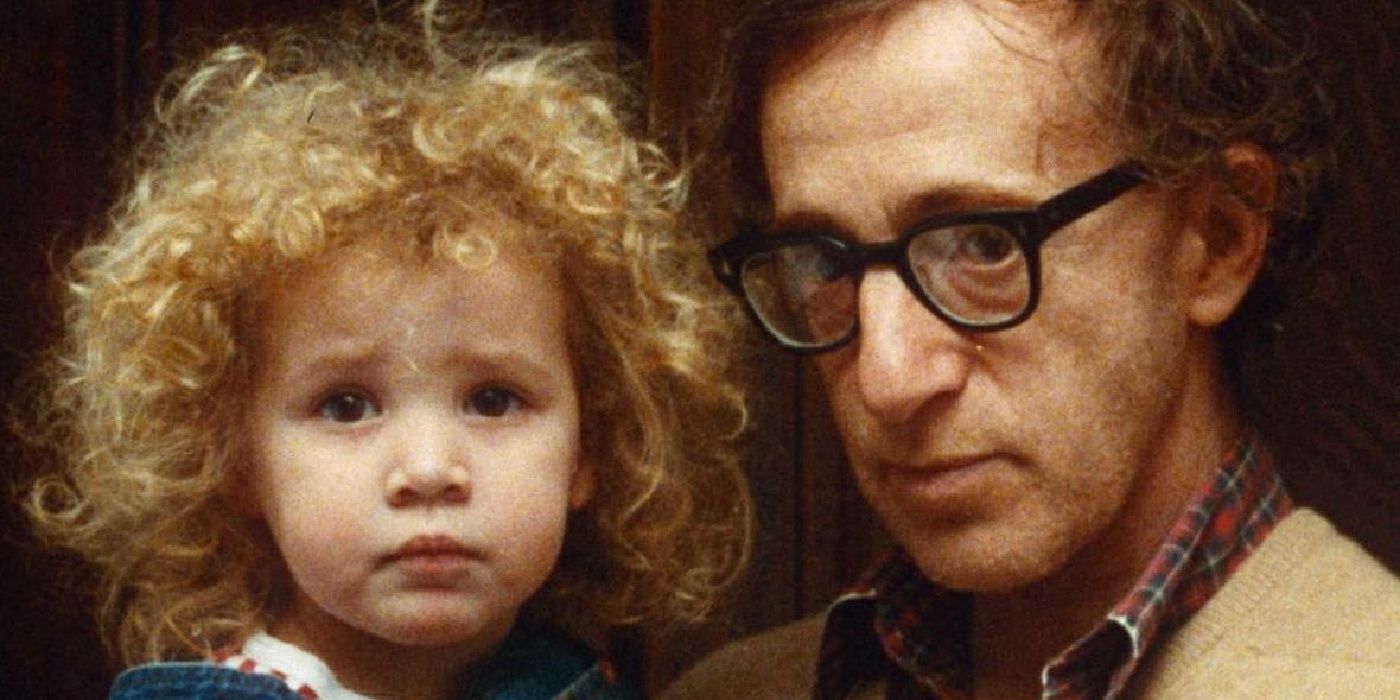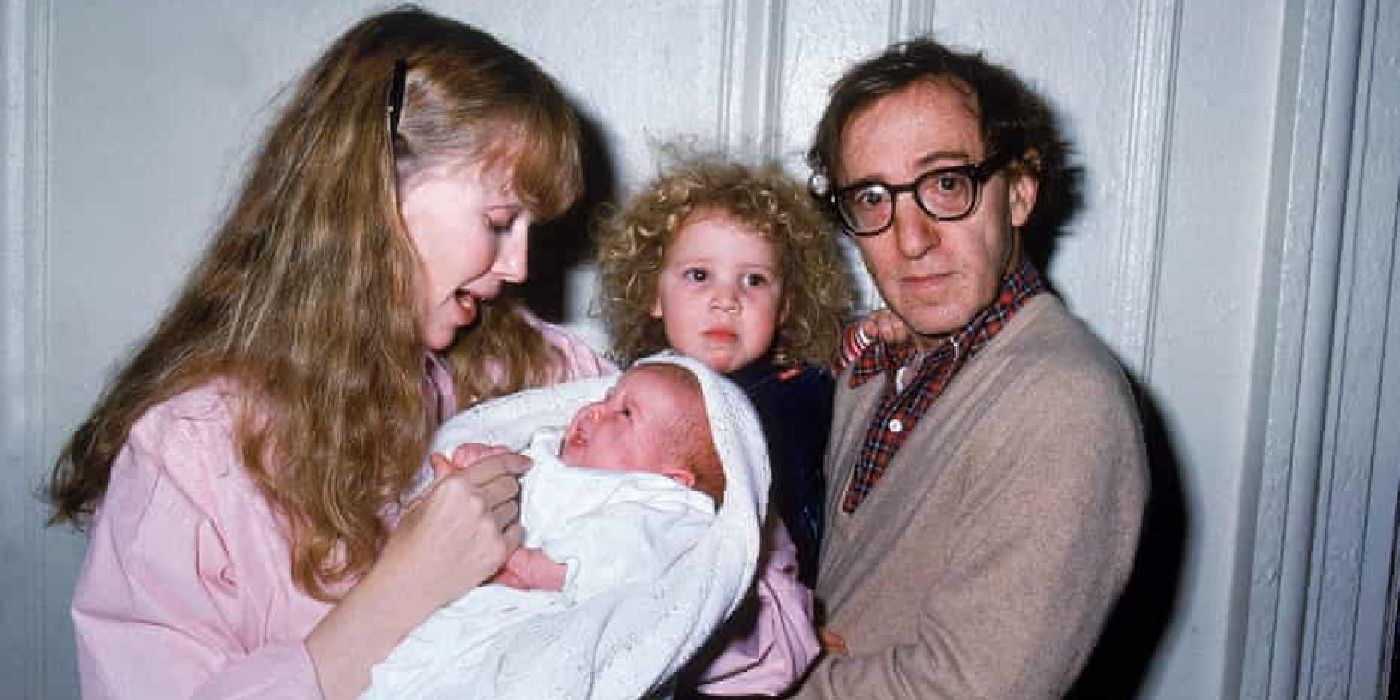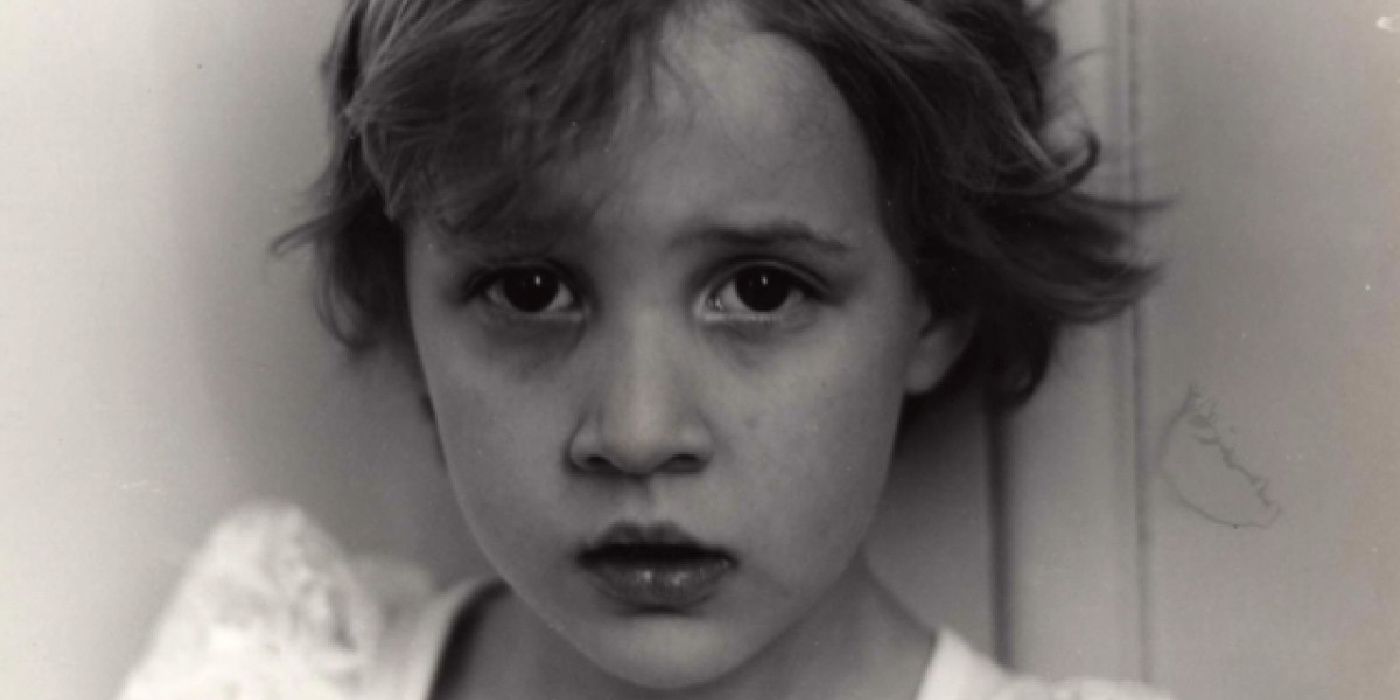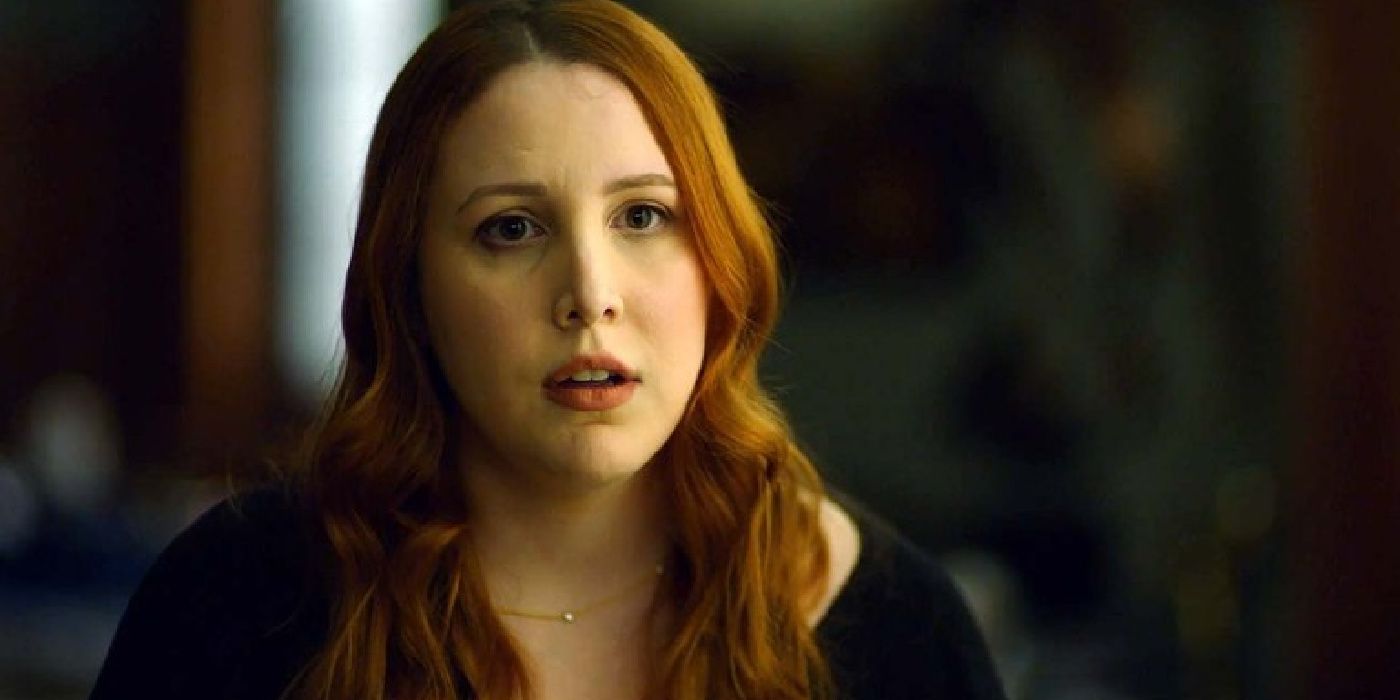Trigger Warning: Contains Descriptions of Sexual Abuse
The HBO documentary Allen v. Farrow explores the allegations of sexual abuse brought against Woody Allen by his adopted daughter Dylan Farrow, which occurred in August 1992. Allen v. Farrow episode 1 covers the initial timeline of events, ending with Farrow discovering Allen's affair with her adopted daughter Soon-Yi Previn, setting up Dylan's sexual abuse to be the focus of episode 2. In the three decades that followed the initial accusations and investigation, Dylan Farrow has tried to bring her story to light, particularly since entering adulthood. The documentary is a further step in the journey Dylan Farrow has taken to speak on her own behalf.
The documentary's first episode aired on February 21, 2021, on HBO and garnered over 1 million total viewers, asserting its place as the biggest debut for an HBO documentary series since 2019's The Case Against Adnan Syed. It has already earned positive reviews and is recognized as a potential turning point in the broad perception of the decades-long case. The docuseries holds an approval rating of 87% on Rotten Tomatoes, and the critical consensus is that "Allen V. Farrow unearths new evidence in a well-known case to craft a compelling—if one-sided—indictment of society's complicity in upholding powerful people over seeking justice for those they've wronged."
The abundance of information shared in the documentary is marked by the timeline in which it happened. Beginning in 1985 with the birth and adoption of Dylan by Mia Farrow, the difficult saga of the Allen-Farrow family continues. The documentary covers many details from the custody battle, the response of Allen fans, and the years that followed Dylan Farrow's initial accusation. Here is a rundown of the events leading up to and following Dylan Farrow's allegations against her adoptive father.
Dylan Farrow & Woody Allen's Relationship & Background
In 1979, Allen and Mia Farrow began a romantic relationship after she divorced from André Previn, the German-American composer. Together Previn and Farrow had adopted seven children, among them Soon-Yi Previn, who was found homeless and fending for herself in the streets of South Korea. When Farrow became involved with Allen, he had no interest in children, but as their relationship progressed and Farrow became interested in further adoptions, Allen said he would be more invested if she adopted a little blond girl. Farrow adopted Dylan as a baby in 1985. Allen took an instant liking to Dylan, and he said in his memoir Apropos of Nothing that he was "delighted to be a father." According to close family friends, Farrow, and Dylan herself, Allen would constantly hover around Dylan, watching her play and taking her out to the theatre for cultural experiences. The intense closeness began to disturb other adults who knew the family, and in 1990 Allen started seeing a therapist who said he was "inappropriately intense" with Dylan.
Mia Farrow gave birth to her son with Allen, Ronan (then named Satchel) in 1987, and four years later on December 17, 1991, Allen adopted Farrow's two children Moses and Dylan, making the three youngest children legally his. In that same month, Allen started a sexual relationship with Mia Farrow's daughter Soon-Yi Previn, with whom he started becoming close when she was 17 after she injured herself in a soccer game and he started giving her rides to school. On January 13, 1992, Mia Farrow found pornographic images of Previn on Allen's desk. She returned to her own apartment where she confronted Previn and then Allen, and Allen admitted his feelings for Farrow's daughter. Allen and Farrow split up shortly thereafter, and Farrow's therapist encouraged her to tell the truth to Dylan and Ronan, and so she explained about their father's relationship with Previn. Dylan Farrow states in the documentary that that was the moment she realized "it wasn't just me."
Dylan Farrow's Sexual Assault Allegations & Proceedings
In 1991, Farrow took her daughter Dylan to see a therapist named Dr. Coates, fearing that the child was becoming withdrawn and uncommunicative. According to the documentary, Dylan Farrow told the therapist that she "has a secret," but this information was never shared with her mother. August 4, 1992 is the date that Dylan Farrow states that she was assaulted by Allen. A babysitter confirmed that the seven-year-old and Allen went missing for 20 minutes in the country house in Connecticut. The next day, family friend Casey Pascal informed Mia Farrow that the babysitter had seen Allen sitting with his face in Dylan's lap. Mia Farrow started making several home recordings of her daughter describing the incident. In one of the home videos, Dylan says that Allen "touched my privates," and was "breathing on my leg" before her led her to the attic and digitally assaulted her [via Vanity Fair]. Dr. Coates confirmed that Dylan Farrow had divulged the assault, and Mia Farrow took her daughter to a pediatrician, though Dylan was too shy to correctly report what had happened, referring to her shoulder as the "private part." The next day, she went back in to amend her story, and though the doctor did not find any physical evidence, he was bound by law to report to authorities.
Between August 13, 1992 and June 7, 1993, Allen and Farrow engaged in a custody battle over Moses, Dylan, and Ronan. In April of 1993, a child psychologist reviewed the medical report from Yale-New Haven Hospital, calling it "seriously flawed," using faulty methodology. He said, "It's just as easy to conclude from this report that Dylan was abused." Allen repeatedly denied the allegations, stating in a 60 Minutes interview that any accusations were "illogical" and that what happened in August of 1992 was "a total non-event." He theorized that Mia Farrow had become enraged by his relationship with Previn and therefore coached Dylan to say such things. Dr. Coates asserted that Allen's fixation on Dylan was indeed inappropriate but likely not sexual, and Farrow's lawyer posited that Coates was "mesmerized" by Allen and therefore too accepting of his version of events.
On June 7, 1993, Allen lost the custody battle. Acting Justice Elliott Wilk of the State Supreme Court wrote a 33-page indictment wherein he says that Allen is "self-absorbed, untrustworthy and insensitive" and that he does not believe "that the evidence proves conclusively that there was no sexual abuse" [via The New York Times] He said that the therapists who interviewed Dylan were inconclusive, calling their judgments "colored by their loyalty to Allen." "Mr. Allen has demonstrated no parenting skills that would qualify him as an adequate custodian for Moses, Dylan, or [Ronan]," Wilk said, also criticizing Allen for pulling Previn away from her family. Connecticut State Attorney Frank Maco said in September of 2003 that there was probable cause to prosecute Allen on the charges of child sexual assault. However, he desired to spare Dylan the trauma of standing trial, so he declined to press charges.
Dylan Farrow's Public Statements
In an October 23, 2013 article in Vanity Fair, the precise allegations lobbied against Allen by Dylan Farrow were brought to light, and on February 1, 2014, Dylan Farrow wrote an essay divulging her experience in The New York Times. "What’s your favorite Woody Allen movie?" she wrote. She then described the assault:
"Before you answer, you should know: when I was seven years old, Woody Allen took me by the hand and led me into a dim, closet-like attic on the second floor of our house. He told me to lay on my stomach and play with my brother’s electric train set. Then he sexually assaulted me. He talked to me while he did it, whispering that I was a good girl, that this was our secret, promising that we’d go to Paris and I’d be a star in his movies. I remember staring at that toy train, focusing on it as it traveled in its circle around the attic. To this day, I find it difficult to look at toy trains."
In 2016, Dylan's brother Ronan Farrow corroborated his sister's account in The Hollywood Reporter.
Attention for Dylan Farrow's story did not begin gaining interest in the public eye until the #MeToo Movement was well underway. In an article for the Los Angeles Times entitled "Why has the #MeToo revolution spared Woody Allen?" Dylan Farrow once again asserted her take on the events on August 4, 1992, as well as the other grooming tactics Allen used on her such as instructing her to suck his thumb and cuddling with her in bed in only his underwear. Over the course of three years, the documentary Allen v. Farrow was produced in secret, with producers Amy Ziering, Amy Herdy, and Kirby Dick pulling police reports and court documents, and finding witnesses who would share their account publicly for the first time. Dylan Farrow's one-time alias Eliza was used for the working title so as to keep all the details wrapped up.
The filmmakers requested Allen and Previn's participation but did not receive a response. Moses Farrow, who sides with his father, also declining to make a statement. Mia and Dylan Farrow were also reluctant to be interviewed, but over the course of one month, Dylan was convinced, and then ten months later Mia joined the project. As of February 21, 2021, Allen continues to deny the allegations with support from Previn. On February 22, 2021, Dylan Farrow tweeted, "Thank you to everyone for their kind words, the outpouring of support means more to me than I can say. Speaking the truth is so difficult, but I hope any fellow survivors who watched last night know they are not alone. The truth is something that cannot be changed."




